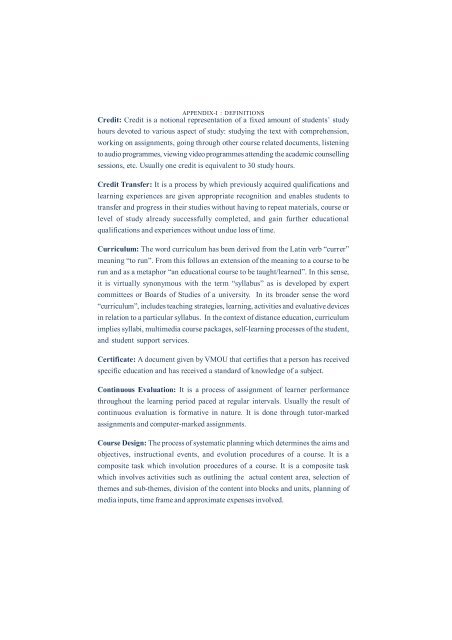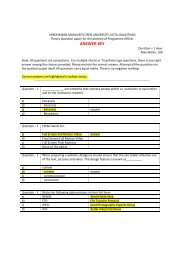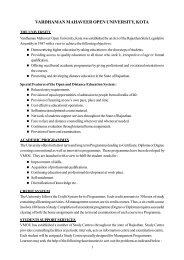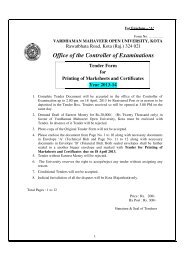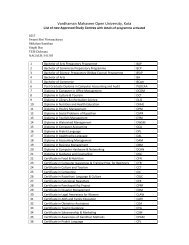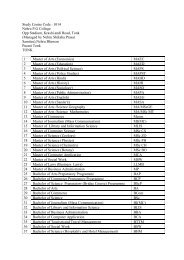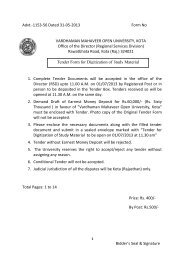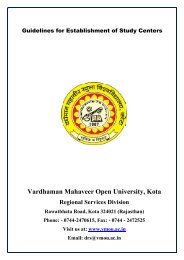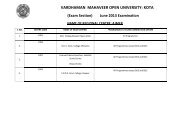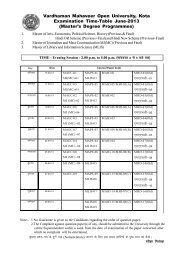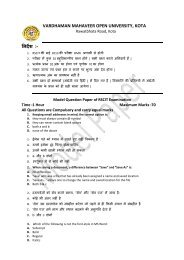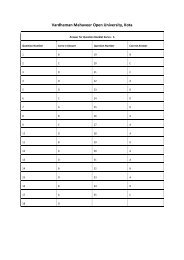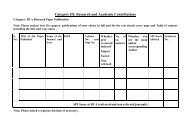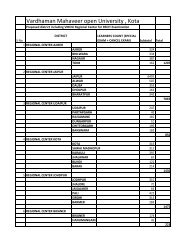Handbook Volume I - VMOU, Kota
Handbook Volume I - VMOU, Kota
Handbook Volume I - VMOU, Kota
Create successful ePaper yourself
Turn your PDF publications into a flip-book with our unique Google optimized e-Paper software.
APPENDIX-I : DEFINITIONS<br />
Credit: Credit is a notional representation of a fixed amount of students’ study<br />
hours devoted to various aspect of study: studying the text with comprehension,<br />
working on assignments, going through other course related documents, listening<br />
to audio programmes, viewing video programmes attending the academic counselling<br />
sessions, etc. Usually one credit is equivalent to 30 study hours.<br />
Credit Transfer: It is a process by which previously acquired qualifications and<br />
learning experiences are given appropriate recognition and enables students to<br />
transfer and progress in their studies without having to repeat materials, course or<br />
level of study already successfully completed, and gain further educational<br />
qualifications and experiences without undue loss of time.<br />
Curriculum: The word curriculum has been derived from the Latin verb “currer”<br />
meaning “to run”. From this follows an extension of the meaning to a course to be<br />
run and as a metaphor “an educational course to be taught/learned”. In this sense,<br />
it is virtually synonymous with the term “syllabus” as is developed by expert<br />
committees or Boards of Studies of a university. In its broader sense the word<br />
“curriculum”, includes teaching strategies, learning, activities and evaluative devices<br />
in relation to a particular syllabus. In the context of distance education, curriculum<br />
implies syllabi, multimedia course packages, self-learning processes of the student,<br />
and student support services.<br />
Certificate: A document given by <strong>VMOU</strong> that certifies that a person has received<br />
specific education and has received a standard of knowledge of a subject.<br />
Continuous Evaluation: It is a process of assignment of learner performance<br />
throughout the learning period paced at regular intervals. Usually the result of<br />
continuous evaluation is formative in nature. It is done through tutor-marked<br />
assignments and computer-marked assignments.<br />
Course Design: The process of systematic planning which determines the aims and<br />
objectives, instructional events, and evolution procedures of a course. It is a<br />
composite task which involution procedures of a course. It is a composite task<br />
which involves activities such as outlining the actual content area, selection of<br />
themes and sub-themes, division of the content into blocks and units, planning of<br />
media inputs, time frame and approximate expenses involved.


